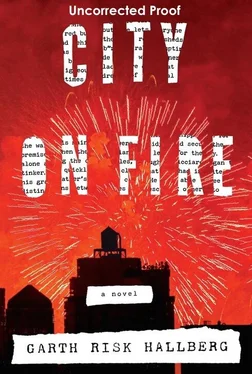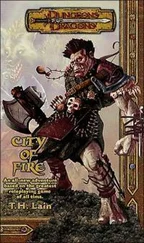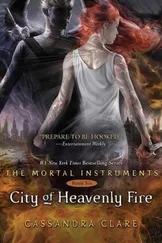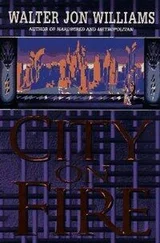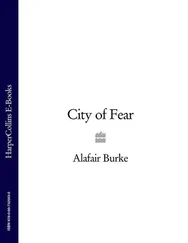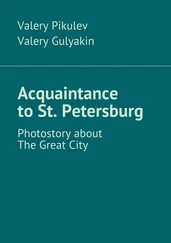She teetered over to Amsterdam in her heels and caught a cab. She asked the driver to take the Transverse, to avoid the quagmire around Daddy’s. Only after a minute did it occur to her that she’d given the cabbie the address of the old place, out of habit. She leaned forward to request that he take a right when they hit Fifth — they were actually going to Brooklyn. She still thought of it that way, as a request, rather than an instruction. He could just as easily have adopted some alternate route to run the meter up, or left her for dead in a field near one of the airports, having taken her wallet. She used to have a gift for trusting people who claimed to know the way, but wherever you turned now, these nightmare scenarios seemed to fly at you, like tabloid sheets gusting up from the gutters. Thieves posing as cabbies. Killers posing as cops. And now Kid Shot in Park.
Fighting nausea, she pressed her forehead to the window. Through the cold glass and the snow, she could see up to the top of the wall that hemmed in the transverse road. Branches tattooed the sky. A man with a gun moved from tree to tree, tracking her, but not really. When had she become such a fraidy-cat? She had contrived by certain arcane strategies to keep the answer hidden, even from herself. These always involved a man, analysis had helped her to see. There had been Daddy, and then William, and then Keith, each taking over at the point where his predecessor had failed. But now there was no one left to look after her, or to whom anyone who hurt her would have to answer. She herself was the protector, the final line of defense between Will and Cate and the world, and what frightened her she would just have to face down.
The potholes of Fifth Avenue and the cab’s jellied suspension sent her stomach floating again. The snow was tapering off beyond the breath-fogged glass. Down the length of a sidestreet, the lights of Times Square were cold and inhuman. Surprising, how quickly it emptied out once the cameras were off. She had a sudden vision of the city surrendering to wilderness. The snow would blow off to reveal vines climbing townhouses, cougars prowling the subway entrance. Not a natural order of things, but chaos: children turning against parents, cars falling through holes in the street. Commercial districts empty, neighborhoods overrun. Indigents hunkered in alleys, looking up raccoonlike into the sweep of light from passing cars, paws pressed together, faces smeared with blood. And underneath it all, an echoing pop — the sound she now realized she’d heard, too, up there on the balcony, of a gunshot. In a just world, she thought, whoever the kid was would still be ambulatory, and Amory would be the one in that ambulance, screaming off downtown.
She couldn’t get his voice out of her head. This will all blow over. A Blight Zone. Nor could she forget that shot. Bile rose hot in her throat. She made it as far as the expressway, but then had to ask the cabbie to pull over. She hunkered, hands on knees, over a Jersey barrier. She hadn’t closed the door behind her, and from it spilled the dome light and the sound of the radio, which the cabbie must have turned up to cover her retching. It was that one call-in host, the primal screamer, Dr. Whosit, with a Z, not actually a doctor. But was it possible his show was already on, at whatever a.m. on a Saturday? And again: could she really be hearing him rant about crooked financiers, so soon after settling with Amory to keep the indictment under wraps? She could feel the telltale spike of her temperature. The alcohol would not let go of her. She would not, would not put her finger down her throat; it had been half a year since she’d last made herself throw up, and what if her kids could see their mother now? Cars whizzed by behind her, a belt of broken lights printing woozy shadows on the concrete. And then it came, and her streak was ended, so that arguably Regan’s first official act of 1977 was to puke her guts out on the shoulder of the FDR.
FOIL-EMBOSSED FRONTALSuncoupling from diadems, confetti dull with soot, business ends of noisemakers trampled under boots, cracked bottoms of disposable champagne flutes, butts of khaki Luckies and pale Pall Malls, nickelbags like punctured lungs, plus bottles: half-full, empty, broken off at the neck for the commission of crimes or smashed into green and brown explosions the red flash of a peep-show sign makes look romantic, in a sleazoid kind of way. Here is the stuff you don’t get on TV. Extraneous footage, B-roll of the aftermath. Broadcast personalities let their Fruit of Islam bundle them into the plush rear cabins of towncars. A union technician in a satin jacket winds cable around his forearm like a hawser; its loose end scrimshaws the snow. By the time the ball, that descended monorchid, goes dark above Times Square, the last masses have drained underground. For a second, the city seems to lean forward and make contact with a future self: ruined, depeopled, and nearly still. In a sealed hangar, forensic economists move around numbered lots with scales and calipers. Believing themselves to have evolved beyond delusion and loneliness, beyond illness and longing and sex, they hum distractedly and wonder what it all meant. To the extent that they’re right about themselves, they’ll have no way of knowing.
And let us not forget the pigeons, who shouldn’t be active this late, but are. They scrabble over hamburger papers that gust up the building fronts, carry their spoils back to the Public Library lions a few long blocks away. Normally they wouldn’t range this far, but they are agitated tonight by sirens that sing of time out of joint, of things gone terribly awry. Which may explain why a little band of them has taken refuge in the busted skylight of a precinct-house in the quiescent blocks south of Lincoln Center. They choir around a sag of see-through plastic. Their claws make little ticking sounds when they move.
It will take Mercer Goodman some time to identify the egg-like shadows up there, but then, sitting almost directly below the sloppy hole cut into the drop ceiling of Interrogation Room 2, what does he have if not time? The acoustic tiles around the hole terminate in discolored edges that look less sawed-off than gnawed. Some water has collected in the sagging underbelly of the plastic sheeting stapled there. Every time the wind kicks up, the seams wheeze asthmatically, letting in the bone-cold air, and then in the silence that follows comes the ticking. Mercer shivers. Just behind his eyes is a stippling pressure like the popping of a thousand champagne corks. Or, more accurately, blood vessels. Mashing his hands to his orbitals brings some relief, but for reasons he’s trying not to think about, he doesn’t want to close his eyes. He’s started to wonder, not quite abstractly, whether the hole in the ceiling is some kind of invitation — whether, by standing on the table in front of him, he might reach it and escape — when it occurs to him that the shadows are not eggs, but birds. Which accounts for the smell in here, like sawdust and the unmucked coops of his childhood. It’s as if they’ve been following him.
And in a way, they’re a welcome diversion; this room is in most other aspects an anxious void. At eye level, the white is monolithic: white door, white formica tabletop, white walls to stare at while you wait for a white man to return, the one who brought you here in the back of a car whose doors lacked interior handles. What had the guy’s name been? McMahon? McManus? Mercer had been too rattled to pay attention to the details, but he’s certain it was McSomething. He’d nudged a Styrofoam cup an inch or two forward, as if to get it exactly halfway between himself and his detainee, white upon the white table. His big body had crowded the doorway. Mercer could see beyond it the open-plan office he’d just been escorted through, the wall of glass blocks like ice unwarmed by sunlight, though Mercer’s throat (bitter ash) and eyes (sandpaper-scoured) suggested it had to be near morning. The tubes of light now overhead revealed Detective McSomething’s eyeglasses to be subtly tinted. Their lower regions, the same blue as his irises, reduced his eyes to pupil. Have a seat, he’d said. I’ll be back in five minutes.
Читать дальше
